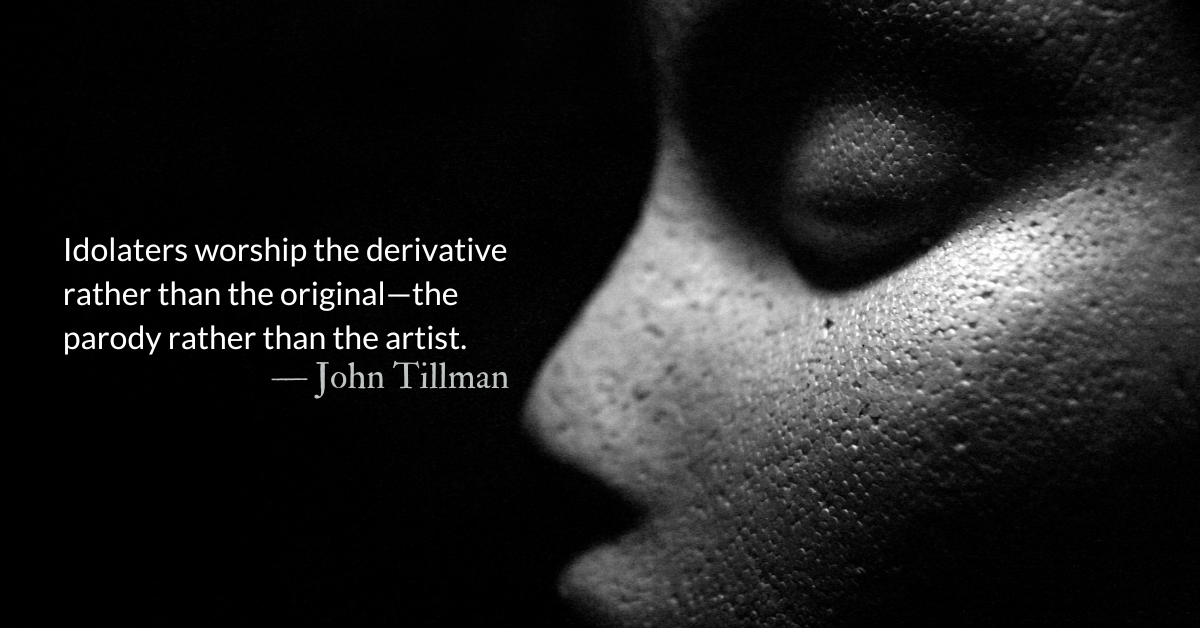Scripture Focus: Jeremiah 10.11-14
11 “Tell them this: ‘These gods, who did not make the heavens and the earth, will perish from the earth and from under the heavens.’ ”
12 But God made the earth by his power;
he founded the world by his wisdom
and stretched out the heavens by his understanding.
13 When he thunders, the waters in the heavens roar;
he makes clouds rise from the ends of the earth.
He sends lightning with the rain
and brings out the wind from his storehouses.
14 Everyone is senseless and without knowledge;
every goldsmith is shamed by his idols.
The images he makes are a fraud;
they have no breath in them.
Originally published on August 16, 2022, based on readings from Jeremiah 10.
Readers’ Choice posts are selected by our readers:
Brian, Montana — How true. May the idols be removed from our lives. We are definitely livings in days similar to Jeremiah’s. God is the only cure.
Barbara, Tennessee — I needed to pray through some things – cultural fears as I age especially! Thanks for this challenge to replace the imitation with the Truth!
Reflection: Idolatry as Parody — Readers’ Choice
By John Tillman
Jeremiah encouraged idolaters to look again at God compared to their idols.
God made the world:
God’s spirit hovered over chaotic nothingness and, by his words, the earth came to be. By his power the mountains were lifted. By his wisdom heavenly bodies took their places. By his understanding the hidden realities of DNA strands, quantum particles, and things science has yet to discover were created. God calls us to serve him, but it is actually he who serves us.
Humans make idols:
Our spirits, disconnected from God, sink in chaos and we are desperate to ground ourselves in something tangible. In our weakness we cast about for symbols of strength (that will yield to our whims). In foolishness we mold realities that center on our needs. In ignorance we claim perfect knowledge and understanding, cutting out of our lives anything that contradicts us. We make our idols to serve us, but we end up serving them.
We become like our idols: fraudulent, shameful, unable to think, and unable to respond. Our hearts harden and our ears tune out and our eyes glaze over.
We think of idol-making as primitive and foolish. The Bible dumps scorn on the practice. It describes how foolish it is to make idols from worldly things when the world and everything in it was made by God. Idolaters worship the derivative rather than the original—the parody rather than the artist.
But are we that different from Jeremiah’s idolatrous audience?
Don’t we make idols of the things culture tells us are important? Careers? Sexual expression? Perfect spouses? Perfect bodies? Perfect families? Power? Influence? Politics? Don’t we pay and sacrifice, expecting these things to protect us, guide us, lead us, teach us?
Our idols make us senseless. God will give sight and hearing to the blind and the deaf.
Our idols make us ignorant. God will give wisdom to those who seek it.
Our idols shame us. God will lift up the humble.
Our idols defraud us. God will have mercy on us.
We need to, with regularity, search through the temples of our hearts for idols that slip in with our culture. No one is immune. No one has arrived. Bring out your idols and compare them to God. Then let him replace them with himself.
Divine Hours Prayer: The Request for Presence
Bow down your ear, O Lord, and answer me… Keep watch over my life, for I am faithful. — Psalm 86.1-2
– From The Divine Hours: Prayers for Summertime by Phyllis Tickle.
Today’s Readings
Ruth 1 (Listen 3:33)
Hebrews 9 (Listen 4:40)
Read more about Normalizing Idols
Love is a greater ethic than knowledge or freedom. When knowledge leads us toward pride, let love lead us toward humility.
Read The Bible With Us
It’s never too late to join our Bible reading plan. Invite friends to join you in reading the Bible with us at a sustainable, two-year pace.









